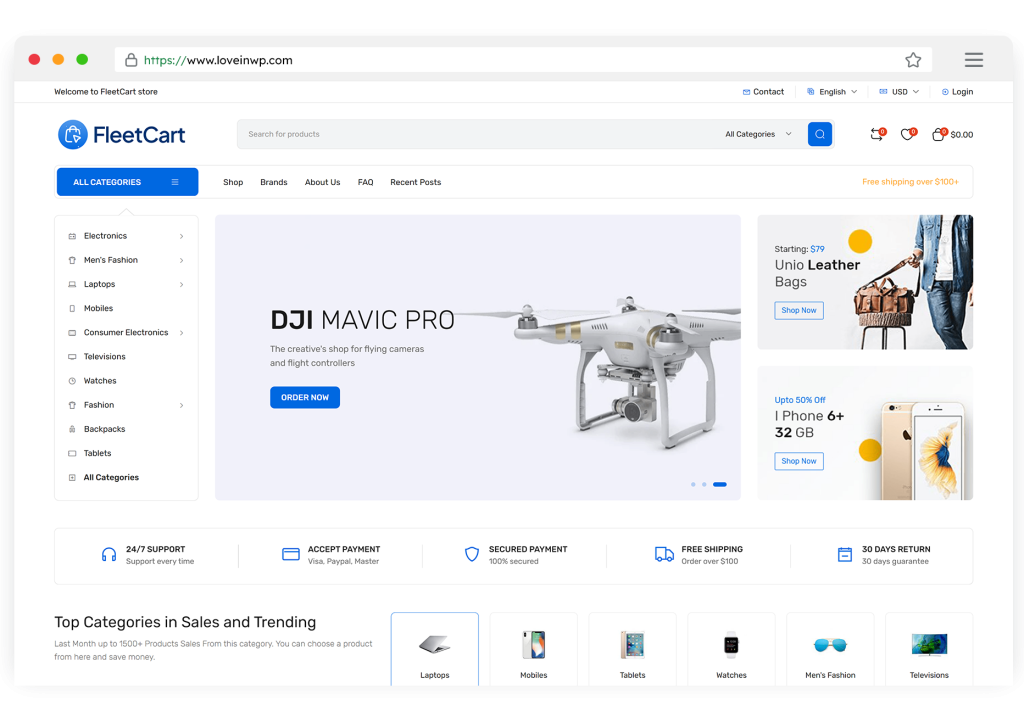The allure of the digital nomad lifestyle, the freedom to be your own boss, and the potential for limitless income – these are just some of the reasons why affiliate marketing has become a booming industry. But before you dive headfirst into promoting products and earning commissions, it’s crucial to equip yourself with the knowledge and strategies needed to build a successful affiliate marketing business. This comprehensive guide will walk you through every step of the process, from finding your niche to tracking your results.

1. Unearthing Your Niche: The Foundation of Success
The foundation of any thriving affiliate marketing business is a well-defined niche. This niche represents your area of expertise and focus – a specific market segment within a broader industry. Choosing a niche that aligns with your interests and knowledge allows you to create content that resonates with your audience and build trust as a genuine authority figure.
Here are some key factors to consider when selecting your niche:
- Passion and Knowledge: Are you genuinely enthusiastic about a particular topic or industry? Your passion will fuel your content creation efforts and keep you engaged in the long run. Additionally, a strong knowledge base allows you to provide valuable insights and recommendations to your audience.
- Profitability: While pursuing your passion is important, it’s also crucial to choose a niche with viable affiliate programs offering attractive commission structures. Research the types of products or services in your chosen niche and ensure they have established affiliate programs with good commission rates.
- Competition: Analyze the level of competition within your chosen niche. While some competition indicates a healthy market, excessive competition can make it difficult to stand out. Consider targeting sub-niches within a broader market to find your sweet spot.
2. Partnering for Success: Choosing the Right Affiliate Programs
Once you’ve identified your niche, it’s time to explore the affiliate programs available. Here are some key aspects to consider when evaluating potential partners:
- Commission Structure: Different programs offer varying commission rates, payout structures (e.g., pay-per-sale, pay-per-click), and cookie lengths (duration for which a sale is attributed to your efforts). Choose programs that align with your marketing strategy and offer competitive commissions.
- Product Relevance: Ensure the products or services promoted through your affiliate links are relevant to your niche and target audience. Promoting irrelevant products will likely result in low conversion rates and damage your credibility.
- Program Reputation: Research the reputation of the affiliate program and the brand behind it. Partner with programs that have a proven track record of reliable payouts and ethical business practices.
- Program Transparency: Choose affiliate programs that provide clear and detailed information about their terms, conditions, tracking methods, and reporting tools.
3. Building Your Digital Haven: Crafting a Compelling Website
While not mandatory for all affiliate marketing strategies, having a website can significantly enhance your reach and establish a strong brand identity. A well-designed website acts as your central hub, allowing you to showcase your expertise, publish valuable content, and strategically place your affiliate links.
If you choose to create a website, consider these points:
- User-Friendly Design: Prioritize a clean, user-friendly website design that is easy to navigate and optimized for mobile viewing.
- Engaging Content: Create valuable and informative content that caters to your target audience’s needs and interests. This can include blog posts, product reviews, tutorials, and informative guides. Strategically incorporate your affiliate links within your content, ensuring they provide natural context and value to your readers.
- SEO Optimization: Optimize your website content and structure for search engines to improve search ranking and increase organic traffic.
4. Content is King: Strategies for Audience Engagement
High-quality content is the lifeblood of any successful affiliate marketing business. Your content should not only be informative and engaging but also strategically designed to convert website visitors into paying customers for your affiliate partners. Here are some effective content creation strategies:
- Blog Posts: Publish informative blog posts that address your target audience’s pain points and offer solutions. Integrate relevant affiliate links within your content, but ensure they are not the sole focus.
- Product Reviews: Conduct in-depth product reviews that showcase the features and benefits of your affiliate products. Provide a balanced perspective, highlighting both the pros and cons, to build trust with your audience.
- Comparison Guides: Create comparison guides that compare and contrast different products within your niche. This allows you to highlight the strengths of your affiliate offerings while providing valuable information to potential customers.
- Video Content: Consider incorporating video content such as product tutorials, explainer videos, or customer testimonials to diversify your content strategy and engage your audience visually.
5. Mastering the Art of Promotion: Reaching Your Target Audience
Creating stellar content is just one piece of the puzzle. To truly succeed in affiliate marketing, you need effective strategies to promote your content and reach your target audience. Here are some key channels to explore:
- Search Engine Optimization (SEO): Implement SEO best practices to optimize your website and content for search engines. This will improve your organic search ranking and attract visitors who are actively searching for products or services related to your niche.
- Social Media Marketing: Leverage social media platforms like Facebook, Instagram, Twitter, or Pinterest to promote your content and connect with your target audience. Share engaging snippets of your content, participate in relevant conversations, and utilize targeted advertising options to reach a wider audience within your niche.
- Email Marketing: Build an email list of subscribers interested in your niche and content. Utilize email marketing to nurture leads, share valuable content, and promote your affiliate products through targeted email campaigns.
- Paid Advertising: Consider incorporating paid advertising strategies into your marketing mix. Platforms like Google Ads, Facebook Ads, or native advertising networks allow you to target specific demographics and interests, driving high-quality traffic to your content and affiliate offers.
- Collaborations and Influencer Marketing: Partner with other bloggers, YouTubers, or social media influencers within your niche. Explore guest blogging opportunities, co-creating content, or influencer endorsements to reach a wider audience and leverage their established credibility.
6. Tracking Your Progress: Measuring Success with Analytics
Monitoring your progress and measuring the effectiveness of your affiliate marketing efforts is crucial for long-term success. By analyzing key metrics, you can identify what’s working and adjust your strategies accordingly. Here are some essential analytics tools and metrics to track:
- Website Traffic: Track website traffic using tools like Google Analytics to understand how many visitors you are attracting and which sources are driving the most traffic.
- Click-Through Rate (CTR): Monitor the CTR of your affiliate links to measure how effective they are in enticing visitors to click and potentially make a purchase.
- Conversion Rate: Analyze your conversion rate, which refers to the percentage of visitors who take a desired action on your website, such as making a purchase through your affiliate link.
- Affiliate Program Reporting: Utilize the reporting tools provided by your affiliate programs to track key metrics like sales generated, commission earned, and click-through rates specific to their links.
- Social Media Engagement: Track key metrics like follower growth, post engagement (likes, comments, shares), and website traffic generated from your social media efforts.
7. Building Trust and Transparency: Ethical Considerations
Building trust and maintaining transparency are paramount in affiliate marketing. Here are some key ethical considerations to keep in mind:
- Disclosure: Always disclose that you are using affiliate links. Many countries have regulations requiring clear disclosure of affiliate relationships. You can achieve this by adding a disclaimer on your website or including a statement within your content whenever you mention an affiliate product.
- Authentic Recommendations: Only recommend products or services you genuinely believe in and have used yourself (if possible). Promoting products solely based on commission rates can damage your credibility with your audience.
- Transparency in Content: Ensure your content is honest, unbiased, and provides genuine value to your audience. Don’t mislead your readers into thinking your content is purely informational when it has a promotional intent.
8. Continuous Learning and Growth: Staying Ahead of the Curve
The digital marketing landscape is constantly evolving. To stay ahead of the curve, it’s crucial to continuously learn and adapt your strategies. Here are some ways to stay informed and improve your affiliate marketing skills:
- Follow Industry Blogs and Experts: Subscribe to blogs and publications focused on affiliate marketing. Follow industry experts on social media to stay updated on the latest trends, strategies, and best practices.
- Attend Online Courses and Workshops: Invest in online courses or workshops offered by reputable platforms to learn new skills and refine your affiliate marketing strategies.
- Network with Other Affiliates: Connect with other affiliate marketers in your niche or online communities. Sharing experiences, collaborating, and learning from each other can be a valuable source of growth.
- Experiment and Analyze: Don’t be afraid to experiment with different marketing techniques and content formats. Track your results and analyze what works best for your audience and niche. Continuously adapt and refine your approach based on data insights.
Conclusion: Building Your Affiliate Marketing Success Story
Remember, success doesn’t happen overnight in affiliate marketing. Building trust with your audience and establishing yourself as a reliable source of information takes time. Stay passionate, create valuable content consistently, and continuously learn to refine your strategies. By implementing the practices outlined in this guide and adapting them to your specific niche and audience, you can turn your affiliate marketing aspirations into a thriving business.





